A wonderful serenity has taken possession of my entire soul, like these sweet mornings of spring which I enjoy with my whole heart.
I am so happy, my dear friend, so absorbed in the exquisite sense of mere tranquil existence, that I neglect my talents.
I am alone, and feel the charm of existence in this spot, which was created for the bliss of souls like mine. I am so happy, my dear friend, so absorbed in the exquisite sense of mere tranquil existence, that I neglect my talents.
I should be incapable of drawing a single stroke at the present moment; and yet I feel that I never was a greater artist than now.
It is officially less than four months to the 2023 general election holding in February, the Independent National Electoral Commision (INEC) says it is leaving no stone unturned to ensure that the election lives up to its expectation, especially in view of the digital accreditation introduced by the new electoral law.
As preparation for the 2023 General Elections picks up pace, Chairman of the Independent National Electoral Commission (INEC), Professor Mahmood Yakubu is not mincing words as regards the Commission’s commitment to raising the bar of the standard set in previous elections.
He has charged Resident Electoral Commissioners (RECs) to work towards addressing some re-occurring logistics issues in the conduct of elections and ensure that the 2023 general elections are different from all previous elections in terms of INECs preparations and delivery.
The INEC Chairman made the call during the Commission’s second quarterly meeting with RECs in Abuja.
Professor Yakubu, explained that the meeting would review the engagements with stakeholders on the proposed expansion of voters’ access to Polling Units as well as preparations for the Continuous Voter Registration exercise, among other things.
He said “as we continue to plan for the next General Election, the RECs have been directed to compile and submit an inventory of all election materials in order to determine shortfalls and take early steps to ensure their adequacy and availability.
“Only a few states are still outstanding. I wish to remind the States that are yet to make their submissions to do so by the end of this week. This will enable us to address some of the logistics issues that have become a recurring decimal in the conduct of elections in the past. The 2023 General Election must be different from previous elections in terms of our preparations and readiness”.
Speaking on the stakeholders’ engagement on the proposed expansion of Voters’ access to Polling Units and the CVR exercise. The INEC Chairman said “the two activities are inter-related. Our plan is to conclude the ongoing consultations and the actual work on the Polling Units in earnest so that the new locations will be made public for eligible registrants to choose where they wish to register and vote on election day”.
He added “furthermore, those who wish to replace their lost or damaged Permanent Voters’ Cards (PVCs), as well as those who are already registered but who may wish to apply for transfer of their registration from one location to another, will be able to do so as provided by law”.
Commenting further on planning for elections, the INEC Chairman disclosed that the Commissions current Strategic Plan (SP) and the Strategic Programme of Action (SPA), 2017- 2021, was being reviewed to capture the period from 2022-2026.
To achieve this, he said a committee was inaugurated a few weeks ago with the mandate of reviewing the Commissions SP and SPA, and hinted that the Committees report would be ready by the end of March subject to stakeholders’ validation and subsequent implementation.
The INEC Chairman commended the RECs and staff of INEC for ensuring that the two elections conducted so far in 2021 met the standard for credible elections. The two elections were in Magama/Rijua Federal Constituency of Niger State and Kafin Hausa State Constituency in Jigawa State. He urged the RECs to continue to strive to do even better in future elections in Ekiti East State Constituency 1 bye election scheduled for 20th March, to be followed a week later by the Aba North/Aba South Federal Constituency bye-election in Abia state holding on 27th of March 2021.
“Similarly, with the recent declaration of vacancy by the Delta State House of Assembly, I wish to assure the people of Isoko North State Constituency that the timetable for the bye-election to fill the vacancy in the State House of Assembly will be released before the end of this week”, Professor Yakubu disclosed.
In attendance at the meeting were National Commissioners; Mohammed Kudu Haruna, Barr. May Agbamuche-Mbu, Festus Okoye Esq., AVM Ahmed Tijjani Mu’azu (Rtd), Dr. Adekunle Ogunmola, and Professor Okechukwu Ibeanu.
Other Management staff of the Commission in attendance were; the Secretary to the Commission, Mrs Rose Oriaran-Anthony, the Director General (DG) the Electoral Institute, Dr. Sa’ad Idris, and other Directors of the Commission.
Key provisions of Electoral Act, 2022
In February 2022, President Muhammadu Buhari finally signed the much-awaited and somewhat controversial Electoral Act Amendment Bill into law. In this article, we would review some key provisions and innovations of the new electoral law and further conclude on how its implementation would impact Nigeria’s electoral system.
EARLY RELEASE OF ELECTION FUNDS TO INEC
Section 3(3) of the Electoral Act 2022 provides that funds for general elections must be released at least one year before the election. Under the repealed Electoral Act, No 26, 2010, the disbursement of funds for the elections shall be made in accordance with rules set out by the commission.
EARLY CONDUCT OF PARTY PRIMARIES AND SUBMISSION OF CANDIDATES’ LIST
By virtue of Section 29(1) of the Electoral Act, 2022, political parties shall hold a primary and submit the list of candidates not later than 180 days before the date appointed for a general election. Under the repealed law, submission of a list of candidates shall not be more than 60 days before the date appointed for a general election.
CANDIDATES TO SEEK JUDICIAL REVIEW OF FALSE INFORMATION
Section 29(5) of the Electoral Act 2022 provides that only aspirants who participated in a primary election of political parties can approach the federal high court for review where there are grounds to believe that any information given by his political party’s candidate is false. Under the repealed act, any member of the public can challenge a candidate with a forged certificate. That has now been restricted to only aspirants who participated in primaries wherein the candidate with forged certificate emerged. Members of the public cannot challenge a candidate that submits false information to INEC.
LEGITIMISATION OF E-VOTING/TRANSMISSION OF RESULT
Sections 47 and 50(2) of the Electoral Act, 2022 gives legal backing for use of smart card readers, electronic accreditation of voters and any other voter accreditation technology that INEC deploys. Not just that, it gives legal backing to the electronic transmission of result as INEC now has the power to determine the manner(s) of transmission of result. Recall that the commission introduced the result viewing portal in August, 2020. Section 62(2) gives the commission the power to maintain a centralised electronic register of elections for e-collation.
POLITICAL APPOINTEE NOT ELIGIBLE AS VOTING DELEGATE OR ASPIRANT
By virtue of Section 84(12) of the Electoral Act, 2022, anyone holding a political office must vacate the position before he or she can be eligible to participate in a primary election, convention or congress of political parties either as a candidate or as a delegate. This provision only covers political appointees and does not extend to elected political office holders or public officers employed to the public service. Also, the period when they should relinquish the position seems to be immaterial. What is important is that they must have vacated the political appointment before the convention or congress of their party.
VOTERS WITH PHYSICAL DISABILITIES, SPECIAL NEEDS AND VULNERABLE PERSONS
Section 54 of the Electoral Act, 2022 provides that voters with visual impairment and other forms of disability or incapacitation should be assisted at the polling unit by a person chosen by him or her and the commission shall take reasonable steps to ensure these persons are assisted and provided by suitable means of communication such as braille, large embossed print, electronic devices, sign language interpretation, or off-site voting in appropriate cases.
OVERVOTING REDEFINED
Section 51 Electoral Act, 2022 provides that the total number of accredited voters will become a factor in determining over-voting at election tribunals. Thus, where the number of votes cast at an election in any polling unit exceeds the number of accredited voters in that polling unit, the presiding officer shall cancel the result of the election in that polling unit. This is an improvement on the repealed electoral law which provided that the number of registered voters, as opposed to accredited voters, shall be the factor in determining over-voting at election tribunals and only the commission can declare the election at the polling unit as null and void.
REVIEW OF ELECTION RESULTS DECLARED UNDER DURESS
By virtue of Section 65 of the Electoral Act, 2022, INEC can now, within 7 days, review results declared by a returning officer under duress or where such a declaration was made contrary to the provision of the law, regulations and guidelines, and manual for the election. This is without prejudice to the jurisdiction of a court of competent jurisdiction or election tribunal to review the decision of the returning officer.
EARLY COMMENCEMENT OF CAMPAIGN
Section 94 Electoral Act, 2022 provides that campaign shall commence 150 days before polling day and end 24 hours prior to that day. Under the repealed law, political parties have just 90 days before polling day.
DEATH OF CANDIDATE BEFORE OR AFTER POLLS
Where a nominated candidate dies before the date of election, Section 34 of the Electoral Act, 2022 empowers INEC to suspend the poll and fix a new date for the election within 14 days of the death of the candidate.
Similarly, where a nominated candidate dies after the commencement of polls and before the final result and declaration of a winner, INEC is empowered to suspend the election for a period not more than 21 days. Provided that where it is an election into a legislative House, a fresh primary shall be conducted by the political party of the deceased candidate within 14 days of death.
However, in case of presidential or gubernatorial or federal capital territory area council election, the running mate shall continue with the election and nominate a new running mate.
CONCLUSION
It is safe to conclude that the new Electoral Act is a timely improvement of the repealed version. Incontrovertibly, its implementation has the potential of sanitizing our polluted political atmosphere, reducing election related litigations and instilling transparency and accountability in the electoral processes.
Festus Ogun, a constitutional lawyer and managing partner at FOLEGAL, Lagos, can be reached via festusogunlaw@gmail.com. Culled from thecable.ng

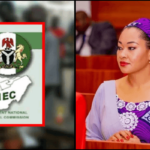
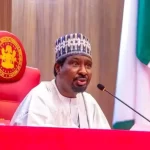



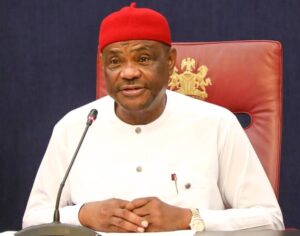
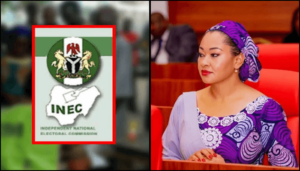
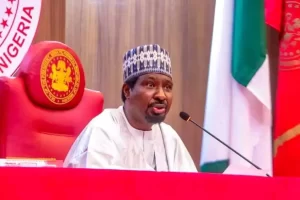
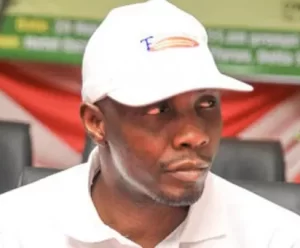
More Stories
Natasha insists on visit to Kogi amid governor’s ban on public gathering
Fubara assures of greater Rivers amid political crisis
Shehu Sani plans Senate return in 2027